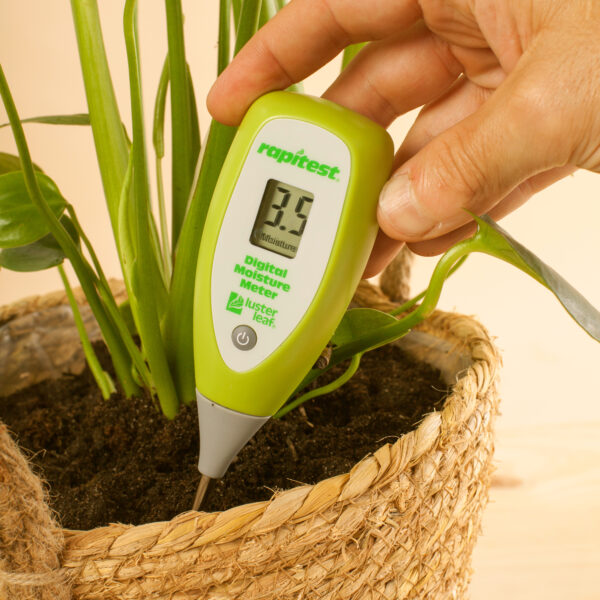The Ultimate Overview to Moisture Meters: A Comprehensive Overview and Just How They Can Save You Money
In the world of building maintenance, building, and various industries, the significance of precisely gauging dampness degrees can not be overstated. Moisture meters act as crucial tools in finding and keeping track of moisture material in materials, helping in preventing expensive problems and guaranteeing the top quality of items. Understanding the nuances of different kinds of dampness meters, their applications, and the possible cost-saving advantages they supply can be a game-changer for companies and specialists alike. Discovering how these devices can not just enhance procedures but likewise add to monetary savings is a trip worth starting.
Kinds Of Moisture Meters
One usual kind is the pin-type dampness meter, which gauges the electric resistance between 2 pins inserted into a product. Pinless dampness meters, on the other hand, usage electromagnetic sensing unit plates to scan a bigger area without triggering damages to the material's surface.
Additionally, there are additionally specialized moisture meters designed for details materials like hay, grain, or soil. These meters supply precise wetness analyses customized to the one-of-a-kind buildings of the product being checked. Infrared wetness meters determine the thermal residential or commercial properties of a material to determine its moisture content non-invasively, making them beneficial for applications where pin or pinless meters may not appropriate. Recognizing the various kinds of moisture meters available can assist industries pick one of the most ideal tool for their particular dampness dimension demands.

Benefits of Making Use Of Moisture Meters

Furthermore, using dampness meters can lead to raised power effectiveness. In agricultural settings, moisture meters play a crucial duty in maximizing plant yields by enabling farmers to check dirt wetness levels and make informed watering decisions.
How to Pick the Right Moisture Meter
Picking the proper moisture meter entails taking into consideration crucial elements such as product compatibility, dimension range, and calibration precision. When selecting a moisture meter, it's essential to make sure that the meter is appropriate for the specific product you will be screening. Different products have varying electric properties that can impact moisture readings, so choosing a meter designed for your product is important for accurate results. In addition, think about the dimension series of the dampness meter. Guarantee that the meter can detect wetness degrees within the variety needed for your applications. Calibration accuracy is one more critical aspect to maintain in mind (Moisture Meter). Select read a wetness meter with reputable calibration to ensure regular and accurate analyses. Some meters may call for periodic calibration modifications, so understanding the calibration process is crucial. By carefully examining these variables, you can select a wetness meter that fulfills your needs and offers precise dampness dimensions for your projects.
Appropriate Methods for Moisture Meter Use
To make sure precise dampness analyses and maximize the effectiveness of a moisture meter, using appropriate techniques is necessary. When other utilizing a pin-type dampness meter, put the pins or probes into the product being evaluated till they make full call. By complying with these correct strategies, users can count on their moisture meter to give trustworthy dampness levels, helping in preventing expensive damages or guaranteeing top quality in various applications.

Cost Financial Savings With Moisture Meter Applications
Exactly how can the calculated application of dampness meters lead to significant cost savings across different markets? In the farming market, dampness meters help in establishing the optimal time for harvesting crops, avoiding over-drying or excess wetness that can affect the final product's high quality.

Furthermore, in the food processing market, wetness meters are important for keeping track of item high quality and guaranteeing compliance with security policies. By accurately gauging moisture content in food, manufacturers can prevent spoilage, keep quality, and lower waste, leading to considerable expense savings. Overall, the critical application of dampness meters is a useful investment that can lead to substantial price decreases and improved efficiency throughout different industries.
Verdict
To conclude, wetness meters are useful tools for determining and spotting moisture degrees in various products. By using the right dampness meter and complying with correct methods, users can properly avoid pricey damages triggered by excess wetness. Purchasing a top quality moisture meter can bring about significant price savings in the lengthy run by identifying possible issues beforehand and enabling punctual remediation. Eventually, dampness meters are vital tools for maintaining the honesty and longevity of structures and products.
Moisture meters serve as vital devices in detecting and keeping an eye on moisture web content in products, assisting in preventing expensive damages and making sure the top quality of items. Infrared dampness meters gauge the thermal site here homes of a material to identify its wetness material non-invasively, making them beneficial for applications where pin or pinless meters might not be ideal.Dampness meters supply very useful benefits in precisely analyzing and monitoring dampness degrees in diverse materials and environments. In agricultural settings, dampness meters play a critical duty in maximizing plant yields by allowing farmers to keep track of soil dampness degrees and make notified irrigation decisions.In verdict, dampness meters are beneficial tools for gauging and identifying wetness levels in various products.